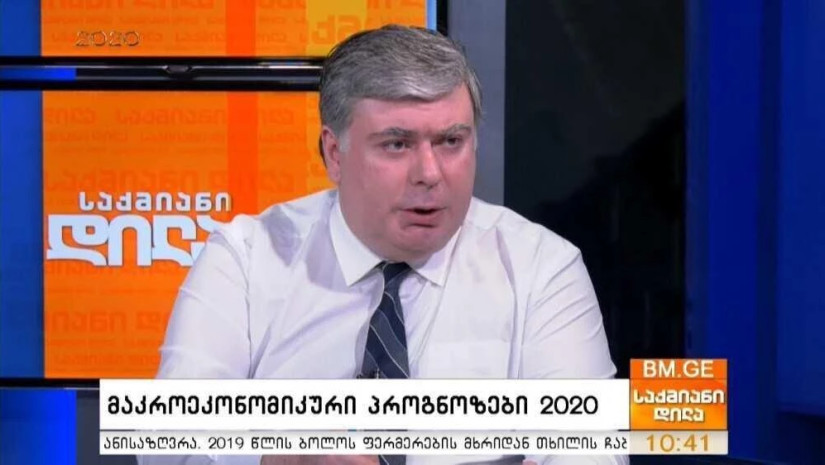In the light of TBC Capita’s Weekly Bulletin published on 21 September 2020, Otar Nadaraia - TBC Group’s Chief Economist -discusses recent GDP growth updates, projections, and prognosis for the country’s economic recovery from COVID-19.
- In the upcoming week, we have the second quarter of GDP growth, which came in at -12.3%. We have a decline in exports of goods moderated in August to -7.5% YoY while imports dropped by -19.3% YoY over the same period. We see positive changes within remittances, as remittance inflows were up by +25.8% YoY in August 2020. At the same time, NBG kept the refinancing rate unchanged at 8.0%. NBG sold 14 million U.S. dollars by the 16th of September. Also, The average wage of hired employees displayed a -2.5% YoY decrease in 2Q 2020 amounting GEL 1,150.1 So my question is quite brief. How is Georgia recovering from the COVID situation? Are those figures expected to be met? And where do we stand right now?
Broadly speaking, we have quite a strong recovery in almost all sectors except tourism and tourism-related sectors.
Remittances and export dynamics, in this environment, are quite promising. I would say that up until now everything has been mostly in line with our expectations. Initially, we had something like -4.5% Now, after the recent spike of the virus in Georgia, without additional fiscal stimulus, it would be in the range of -5.5%. In any case, if we take into account our dependence on tourism, as well as the sizable fiscal stimulus in Georgia, I think those numbers are quite reasonable.
-Can we consider and conclude, at least for this stage, that tourism and the hospitality industry itself is the weakest link in the process of recovery so far, considering that we have quite a complicated upcoming season ahead, with the expected second and third waves of the virus? But at the same time, a positive prognosis is expected about the potential vaccine against COVID. But still, tourism and hospitality remain the weakest links of our recovery. Am I right?
-Yes, of course. I would argue that, so far, probably most of the recovery of the sectors, except tourism already is there. We are now relying on the fiscal stimulus. Also, on the exchange rate front, I think it's important to mention that most of the deficit is financed externally. This should provide a sufficient balancing impact on the shortage of inflows. Overall, the trend of recovery as well as our projections about it are quite reasonable.
-Some of our colleagues are still arguing and strongly recommending to the governmental authorities that additional stimulus from fiscal funds should be diverted to tourism. Do you consider that the hospitality industry still needs additional support? And what kind of support can be provided?
Certainly, support is always good. We know that tourism is the most impacted industry. But what we have to take into account is that what we have is debt finances raised externally that should be repaid in the coming years. Therefore, in this regard, I would maybe go for infrastructure like capital spending. I think this is achievable without additional expenditures on the fiscal side.
-The International Monetary Fund (IMF) revised some basic figures and projections. One of these figures was GDP decline for 2020, which is quite close to the prognosis and main figures issued in the middle of the year by TBC capital which was -5.5% annually for 2020. Due to the recovery trends and main macro parameters, do you expect any additional releases on your behalf for the existing year?
Well, again, I would argue that on the upside we have an additional fiscal stimulus and on the downside, we have the muted recovery, second wave, and more importantly, lockdowns. A higher number of cases is very important and very unfortunate. But still, we are doing relatively well. As you can see from our latest research - macro sector overview, it's lockdown that impacts the growth. Therefore, once again, I would state that our predictions and projections are quite reasonable.















